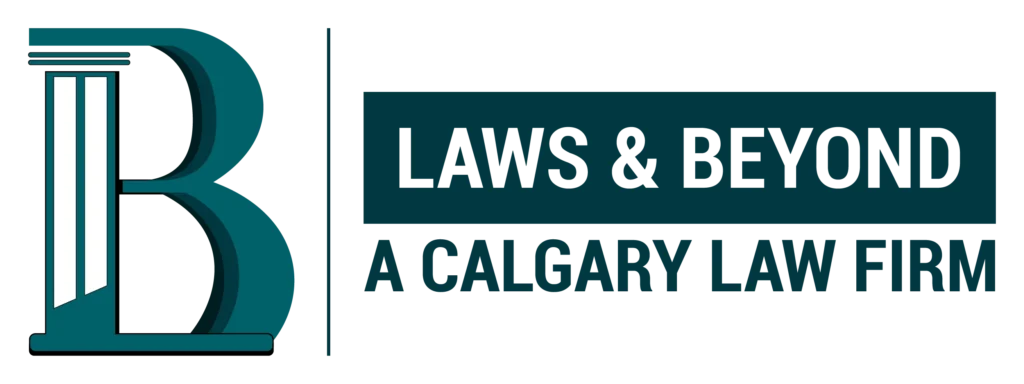Understanding the intricacies of buying and selling small businesses in Alberta is essential for individuals embarking on this complex journey. The legal andscape surrounding these transactions is multifaceted, encompassing various aspects such as contracts, due diligence, licenses, tax considerations, and employment laws. This comprehensive overview aims to shed light on the importance of comprehending the small business laws in Alberta, the legal framework for such transactions, and key considerations for both buyers and sellers.
1. Introduction
The process of buying or selling a small business in Alberta involves navigating a labyrinth of legal requirements. For both buyers and sellers, a thorough understanding of the laws and regulations governing these transactions is imperative. This blog aims to provide a comprehensive overview, ensuring that individuals can make informed decisions throughout this intricate process.
2. Importance of Understanding Small Business Laws in Alberta
2.1 Legal Compliance
Alberta’s specific laws and regulations cover a broad spectrum, including contracts, licenses, permits, taxes, and employment. Compliance with these laws is paramount to avoid legal troubles for both buyers and sellers.
2.2 Protection of Interests
Understanding small business laws allows both parties to protect their interests. Sellers can navigate disclosure requirements and liabilities, while buyers can utilize knowledge about due diligence, warranties, and representations to make informed decisions.
2.3 Negotiation and Contracts
Buyers and sellers engage in negotiations and enter into contracts, making it crucial to understand the governing laws. This includes terms of sale, payment conditions, non-compete agreements, and other legal obligations.
2.4 Financial Considerations
Small business laws in Alberta have implications for financial aspects such as taxes, asset valuation, financing options, and more. A clear understanding assists both parties in navigating these complexities and making informed decisions.
2.5 Professional Assistance
While understanding small business laws is essential, seeking professional assistance from lawyers, accountants, or business brokers specializing in these transactions is equally vital. These professionals ensure compliance and provide valuable guidance.
In conclusion, a nuanced understanding of small business laws in Alberta is pivotal for legal compliance and safeguarding the interests of all parties involved.
3. The Legal Framework for Buying and Selling Small Businesses
3.1 Contracts and Agreements
Buying or selling a small business entails numerous contracts, such as purchase agreements, confidentiality agreements, and leases. Clarity on these agreements is vital for both parties, emphasizing the necessity of professional guidance.
3.2 Due Diligence
Buyers must conduct thorough due diligence to validate information provided by sellers. This involves reviewing financial statements, contracts, permits, licenses, and background checks. Understanding legal requirements during due diligence is crucial for informed decision-making.
3.3 Licenses and Permits
Certain businesses in Alberta require specific licenses or permits. Buyers and sellers must comprehend these requirements to ensure legal operation and prevent potential consequences.
3.4 Tax Considerations
The buying or selling of a small business triggers tax implications. Awareness of capital gains tax, GST, and other applicable taxes is essential for both parties. Consulting with tax professionals ensures compliance and optimal financial outcomes.
3.5 Employment and Labor Laws
For businesses with employees, compliance with Alberta’s employment and labor laws is crucial. Understanding obligations related to contracts, benefits, termination, and workplace safety protects both buyers and employees from legal issues.
In conclusion, the legal framework for buying and selling small businesses in Alberta is multifaceted. A comprehensive understanding of these legal requirements ensures a smooth and legally sound transaction process.
4. Key Considerations for Buyers in Alberta
4.1 Financial Analysis
Buyers must conduct a thorough financial analysis, assessing profitability, revenue trends, and overall financial health. Consultation with financial advisors or accountants is crucial for insights into the business’s viability.
4.2 Market Research
Understanding the market landscape and competition is vital. Thorough market research helps identify trends, target customer segments, and assess demand. Buyers can engage in market research through industry reports and consultations with market experts.
4.3 Legal Due Diligence
Buyers should engage in legal due diligence to identify potential risks or liabilities. Reviewing contracts, permits, and legal agreements ensures a clear understanding of legal obligations and mitigates risks.
4.4 Transition Planning
A well-thought-out transition plan is crucial for a successful acquisition. This plan should cover employee management, customer retention, supplier relationships, and operational continuity.
In conclusion, buyers in Alberta must consider financial, market, legal, and transition planning aspects for a successful small business acquisition.
5. Key Considerations for Sellers in Alberta
5.1 Financial Preparation
Sellers should organize and update financial records before listing the business. Accurate financial statements instill confidence in potential buyers and facilitate the due diligence process.
5.2 Valuation
Determining the business’s value is critical. Consulting with business valuation professionals helps set a realistic asking price and justifies it with supporting documentation.
5.3 Marketing Strategy
Creating a comprehensive marketing strategy attracts potential buyers. A compelling business profile, utilization of online marketplaces, and collaboration with business brokers enhance marketing efforts.
5.4 Disclosure and Due Diligence
Sellers have a legal obligation to disclose material information. Providing accurate and transparent information during due diligence establishes trust and minimizes post-sale legal issues.
5.5 Transition Planning
Planning for a smooth transition is essential. Developing a comprehensive plan for transferring responsibilities, customer relationships, and operational aspects ensures a positive transition for all stakeholders.
In conclusion, sellers in Alberta should focus on financial preparation, valuation, marketing, disclosure, and transition planning for a successful small business sale.
6. Navigating the Process with Legal Expertise
6.1 Seek Legal Advice
Engaging a business lawyer with experience in small business transactions is crucial. They provide guidance on legal requirements, contracts, negotiations, due diligence, and other legal aspects, ensuring compliance and risk mitigation.
6.2 Letter of Intent (LOI)
Drafting a clear and fair Letter of Intent (LOI) is a common practice. Having a corporate lawyer review and assist with drafting safeguards the parties’ interests and ensures clarity in terms.
6.3 Due Diligence
Thorough due diligence involves examining financial and legal aspects. A corporate lawyer facilitates this process, identifies potential red flags, and ensures all legal requirements are met.
6.4 Purchase Agreement
The purchase agreement, a legally binding contract, requires careful drafting or review by a business lawyer. This ensures that all legal aspects are covered, protecting the interests of both parties.
6.5 Closing the Deal
The closing stage involves executing the purchase agreement and transferring ownership. A corporate lawyer oversees the process, ensuring legal compliance and handling last-minute negotiations or issues.
6.6 Post-Closing Obligations
Buyers and sellers may have ongoing post-closing obligations. Legal expertise helps address these obligations, ensuring a smooth transition and resolving any potential disputes. In conclusion, navigating the buying and selling process in Alberta with legal expertise minimizes risks, protects interests, and increases the likelihood of a successful transaction.
7. Conclusion
A robust understanding of small business laws in Alberta is pivotal for successful buying and selling endeavors. By working with legal expertise, both buyers and sellers can navigate complexities, minimize risks, and increase the chances of a smooth and successful transaction. Consultation with experienced business lawyers throughout each stage ensures.




